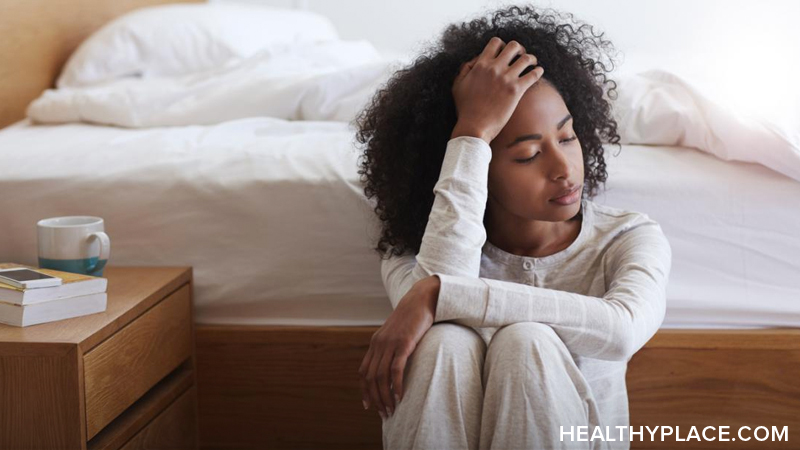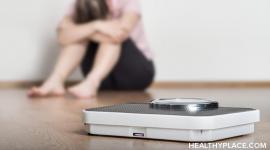How to Deal with Depression and Fatigue

Depression fatigue is an exhaustion like no other. It’s all-encompassing and is almost as if your entire body is fighting hard to sleep no matter what time of day it is or what you are supposed to be doing. If you have depression, chances are high that you will experience this fatigue. Over 90 percent of people with major depression have depression fatigue (Aiken, 2019).
Rest assured, you have the ability to begin to regain your energy starting now. You don’t have to wait for your depression to be gone. And you just might discover that you improve both fatigue and depression as you follow the tips below.
Why Depression and Fatigue Are Connected
There are reasons why nearly everyone who lives with depression is fatigued most of the time. When you understand the causes, you can address them and deal with your exhaustion. Four primary causes of depression fatigue are
- Sleep difficulties
- Diet
- Stress
- Medication
Depression interferes with sleep. Both depression and sleep are brain-based, and neural activity that is off-kilter disrupts normal sleep activity as well as contributes to depression. Hypersomnia (sleeping too much) and insomnia (sleeping too little) both contribute to depression’s fatigue.
Another, lesser-known, sleep problem in depression is sleep inertia. Sleep inertia is a state of grogginess between being asleep and awake. For most people, it lasts mere minutes and isn’t bothersome. For those with depression, though, sleep inertia can last for hours. This means that many people with depression must try to function when their brain isn’t fully awake.
Lifestyle components like diet and stress levels also contribute to both depression and fatigue. The traditionally Western-style diets with red meat, processed and refined foods, and sugars have been implicated in depression (Barhum, 2018). Stress, too, contributes to mood and exhaustion problems. Stress directly impacts brain chemistry, including neurotransmitters like serotonin and dopamine, both of which are associated with mood and energy. Stressful life events also take their toll on mental health and fatigue.
Medication can help improve depression. Unfortunately, fatigue is a side effect of many depression medications. If you suspect that your medication is causing fatigue, you might consider talking to your doctor about changing the dose or the type. Never stop taking any medication on your own because there can be serious withdrawal symptoms in doing so and it can seriously affect your level of depression.
There is good news embedded in each of the causes of depression fatigue. They are all things that you can change to take control over your wellbeing. Not only that, there are other lifestyle components that you can adjust to reduce both depression and fatigue.
How to Fight Depression and Fatigue
When you’re utterly exhausted and experience other symptoms of depression, it is hard to muster the energy to turn things around. It makes sense to need to wait for depression to lift before making changes. However, depression fatigue won’t stop on its own.
You can, however, work with your energy level. Think of this as a gradual, yet powerful, process. Below, you’ll find proven strategies to help both depression and fatigue. You don’t have to do everything at once. Start with one or two items that feel possible (not necessarily easy, for these get easier as you go), do them consistently, and add onto them over time.
These strategies help end depression fatigue. Where do you want to begin?
- Diet. Nutrition is vital to healthy brain functioning. The best foods for fighting depression fatigue are complex carbohydrates, protein, healthy fats (the Omega-3s), and enough vitamins and minerals.
- Eat small meals frequently. This provides steady energy and works with the reduced appetite that often accompanies depression.
- Move. Like eating meals, move frequently but in short amounts. Take short walks, do a brief yoga video, etc.
- Drink water. Staying hydrated is important for energy. Reduce or eliminate caffeine and alcohol, as those zap energy (after the caffeine wears off, fatigue will seem worse).
- Reduce stress. Listening to music, reading, engaging in a hobby, or spending time with someone are just a few examples of ways to relieve stress.
- Improve sleep. Getting seven-to-nine hours of sleep consistently will regulate neural activity that affects depression and sleep. Having a sleep routine that involves unwinding activities helps.
- Get out of bed. Even though it’s hard, getting up and moving in the morning has been shown to reduce depression and make you feel less tired.
- See a therapist. Therapy can help both depression and fatigue by equipping you with skills to deal with both. A special type of therapy called cognitive-behavioral therapy-insomnia (CBT-I) is dedicated specifically to helping people with depression and sleep problems.
Depression fatigue is crushing. You don’t have to let it keep you down, though. Use strategies to deal with both fatigue and depression, and you’ll recover energy and improve your mood.
APA Reference
Peterson, T.
(2021, December 30). How to Deal with Depression and Fatigue, HealthyPlace. Retrieved
on 2026, January 6 from https://www.healthyplace.com/depression/symptoms/how-to-deal-with-depression-and-fatigue



